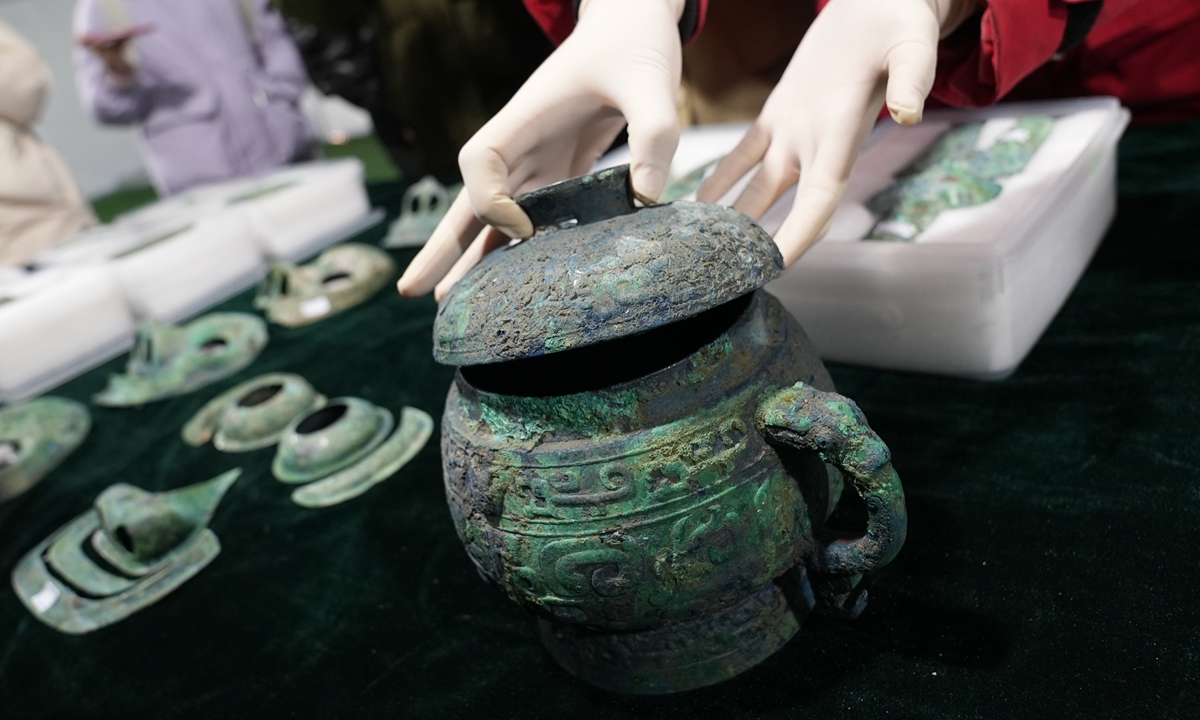
Bronze wares are unearthed in the ruins site in Beijing. Photo: VCG
An ancient bronze dating back to the Western Zhou Dynasty (1046BC-771BC) was unearthed from a ruin site in Beijing, it was announced on Sunday. The bronze features an inscription discussing the establishment of a city nearly 3,000 years ago.
The bronze ware was excavated from a Western Zhou Dynasty tomb located in Liulihe town, Beijing's Fangshan district in 2021. When Chinese archeologists researched the cultural relic, they discovered the inscription on the ware, the Xinhua News Agency reported.
The character "yong," which refers to the establishment of a city, was found within the inscription, explained Sun Qingwei, a professor at Peking University, direct evidence that one of the ranking officials of the king of the Western Zhou Dynasty had established a city in what is now Liulihe town more than 3,000 years ago.
Originally unearthed in 1974, the Liulihe ruin belonged to the ancient Yan Kingdom of the Western Zhou Dynasty.
In addition to excavating a large number of bronze wares, experts have also unearthed mysterious black grains, which were later discovered to be the remains of carbonized plants such as millet and wheat, providing insight into the eating habits of people 3,000 years ago.
